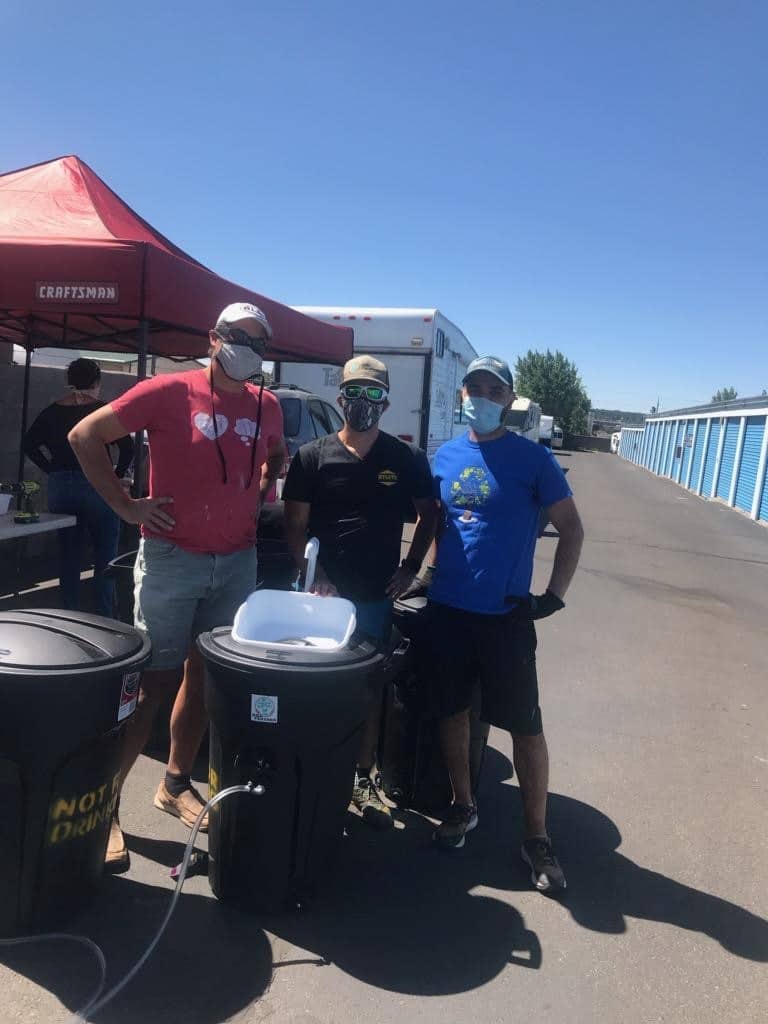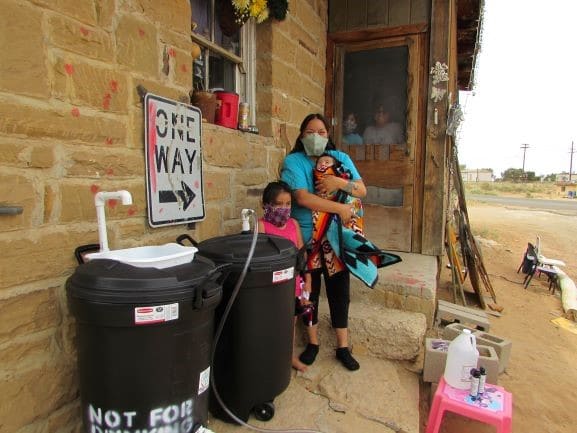Soaring rates of COVID-19 and lack of access to running water has put Native communities at high risk during the COVID-19 pandemic. The Northern Arizona University Institute for Tribal Environmental Professionals (ITEP) is helping the local nonprofit Red Feather build portable handwashing stations on the Navajo and Hopi Nations.

ITEP strives to strengthen tribal capacity and sovereignty in environmental and natural resource management through culturally relevant education, research, partnerships and policy-based services. Director Mehrdad Khatibi, project director Andy Bessler and program coordinator Kelsey Morales spent a Saturday working with other Red Feather staff and other volunteers to build more than 25 portable handwashing stations.
Red Feather is a local non-profit operating from a small office in Flagstaff. They are mobilizing efforts to build hundreds of handwashing stations for Navajo and Hopi families.
“Our ability to meet the growing demand for help alone is limited, which is why we are deploying strategies such as recruiting a broad network of volunteers and training tribal community groups to build the systems themselves,” said Joe Seidenberg, executive director of Red Feather. “We will persist until there are no more requests or funding support has ended.”

The Navajo Nation has one of the highest COVID-19 infection rates in the country, per-capita. One of the best preventative measures for stopping the spread of the virus and staying healthy is through proper handwashing, but this is a challenge for many families living on the Nations due to the lack of running water in homes. It is estimated that roughly 40 percent of Navajo homes lack running water, and a sizeable portion of Hopi homes as well.
For additional information and to support Red Feather’s project, visit its donation website. To build your own handwashing station, watch step-by-step instructions.


